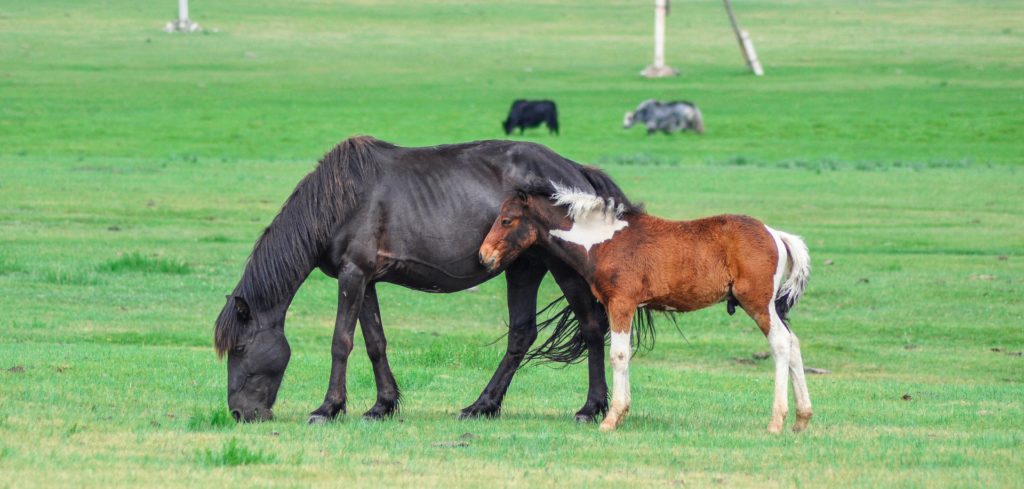Horses have played a significant role in the history and culture of Mongolia for centuries. As a country known for its nomadic lifestyle and vast steppes, horses are not only valued as a means of transportation but also as a source of food. In this article, we will explore the relationship between Mongolians and horses, and delve into the question of whether Mongolians eat horse meat.
The Importance of Horses in Mongolian Culture
Mongolia, a landlocked country in Central Asia, has a long history of horsemanship and a deep cultural connection with horses. For Mongolians, horses are more than just animals; they are companions, partners in work and travel, and a symbol of freedom. The nomadic lifestyle of the Mongolian people is closely intertwined with horses, as they rely on these majestic creatures for various aspects of their daily lives.
The Historical Significance of Horse Meat Consumption
Historically, horse meat has been consumed by various nomadic cultures, including the Mongolians. As a means of survival, nomads utilized every part of the horse, including its meat. Horse meat was a valuable source of nutrition, particularly during harsh winters when other food sources were scarce. It provided essential proteins, vitamins, and minerals necessary for sustaining the nomadic lifestyle.
Horse Meat in Modern Mongolia
In modern Mongolia, horse meat continues to be part of the culinary traditions. Although not as commonly consumed as it once was, it still holds cultural significance and is enjoyed on special occasions or during festivals. Horse meat is often prepared in traditional dishes, showcasing Mongolian culinary expertise and preserving their heritage.
Nutritional Value of Horse Meat
Horse meat is a lean and protein-rich food source. It is low in fat, high in iron, and contains essential amino acids. The nutritional composition of horse meat makes it a valuable dietary option, providing the necessary nutrients for a balanced and healthy diet. However, it is important to note that individual nutritional needs may vary, and dietary choices should be made based on personal preferences and cultural considerations.
Ethical Considerations
The consumption of horse meat raises ethical considerations in various cultures around the world. While it is an accepted practice in Mongolia, other countries have differing views on this matter. It is essential to respect cultural diversity and understand the historical context and traditions associated with horse meat consumption in Mongolia.
The Perception of Horse Meat in Different Cultures
The perception of horse meat varies across different cultures. In some countries, such as France and Japan, horse meat is consumed and considered a delicacy. In others, it is viewed as taboo or unacceptable. These cultural differences highlight the complexity of food preferences and the role of cultural norms in shaping dietary choices.
Conclusion
Horses have a profound influence on Mongolian culture, history, and cuisine. The bond between Mongolians and horses goes beyond their practical roles as transportation and work companions. While horse meat consumption has evolved over time, it remains an integral part of Mongolian culinary traditions and cultural heritage. Understanding the significance of horse meat in Mongolia provides insight into the rich tapestry of their nomadic lifestyle and the enduring connection they have with these magnificent animals.
FAQ
Is horse meat nutritious?
Horse meat is considered to be a nutritious food source. It is lean, high in protein, and contains essential nutrients such as iron, zinc, and B vitamins
What does horse meat taste like?
The taste of horse meat can vary depending on factors such as the age of the horse and the cooking method used. Generally, horse meat has a slightly bitter and gamey flavor. It is often described as rough and lean, with a texture similar to beef.
How expensive is horse meat?
While horse meat may be relatively more expensive than beef and mutton, it is valued by certain communities for its unique qualities and cultural significance. The higher price reflects the specialized production, limited availability, and cultural perceptions associated with horse meat consumption.
What dishes are made with horse meat?
“Beshbarmak,” which translates to “five fingers” in Kazakh, is another popular dish that prominently features horse meat. It is a celebratory dish often served during special gatherings or events. Beshbarmak traditionally includes boiled horse meat, which is then thinly sliced and arranged on a platter. It is served with boiled pasta or flatbread and accompanied by an assortment of vegetables such as onions and potatoes. The dish is typically eaten with hands, as the name suggests, using all five fingers to savor the flavors.

